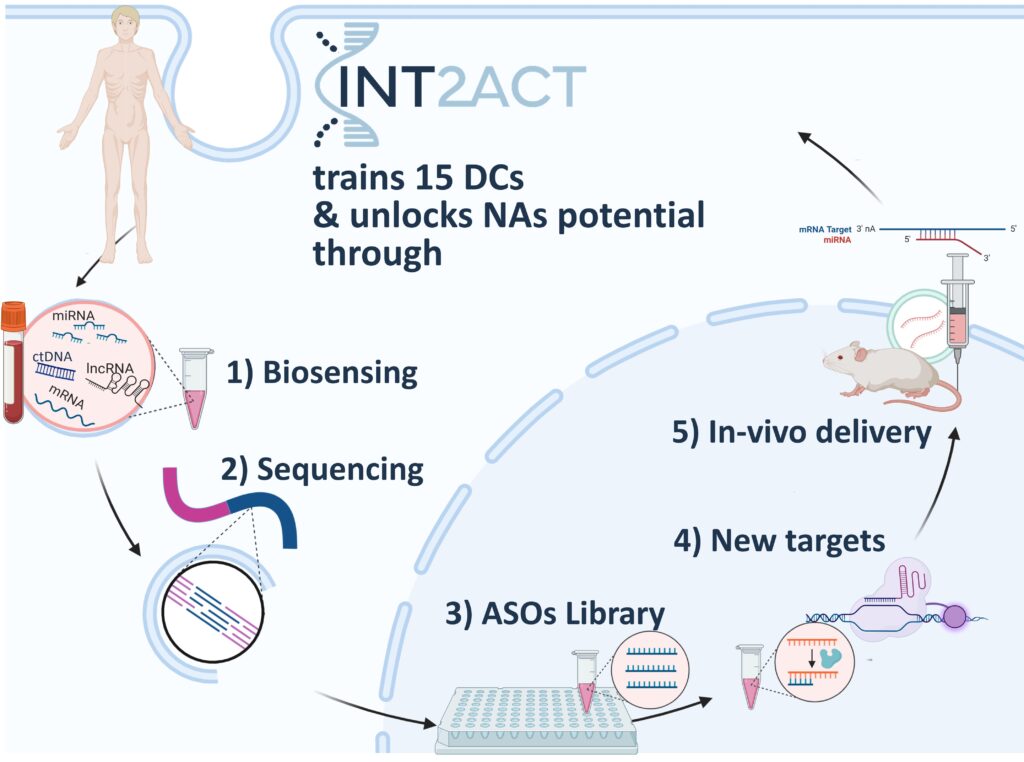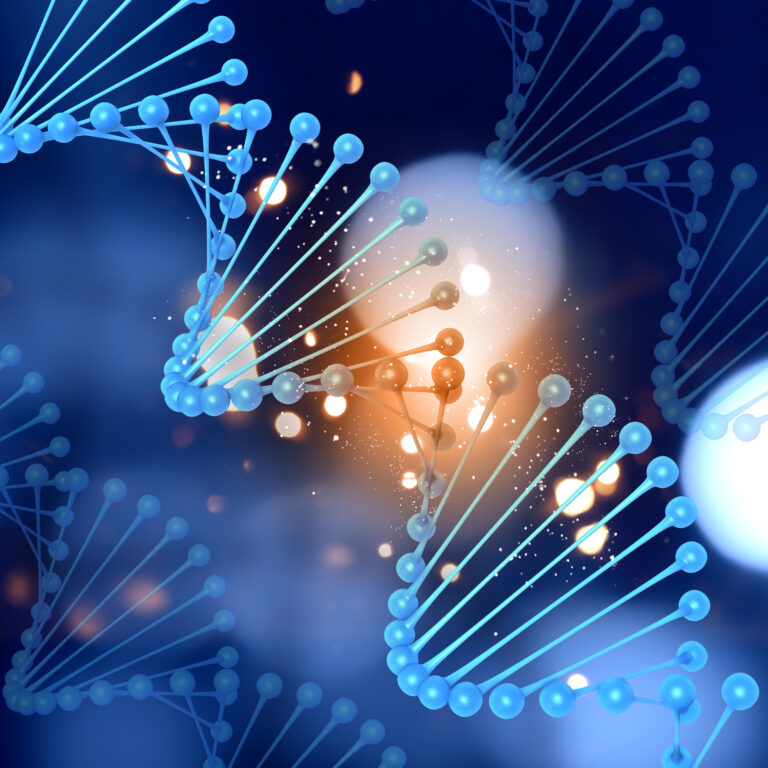THIS WEBSITE USES COOKIES
We use cookies to personalise content, to provide social media features, and to analyse our traffic. By choosing 'allow all cookies', you consent to our cookies.
To find out more, read our privacy policy and cookie policy.
The INT2ACT project – Innovative Nucleic Acids Technologies for Analysis, Detection and Treatment – is a Doctoral Network (DN) supported by the European Union’s Marie Skłodowska-Curie Actions programme.
INT2ACT aims to advance nucleic acid (NA) technologies for clinical applications. This includes developing advanced methods to detect and analyse NAs in patient liquid biopsies, enhancing direct RNA sequencing, creating novel antisense oligonucleotide libraries and optimising delivery systems. By unlocking NAs’ full potential, INT2ACT paves the way for therapeutic vaccines, innovative genetic therapies, and precision medicine breakthroughs.
INT2ACT will also train 15 doctoral candidates through an interdisciplinary programme, equipping them with skills for careers across research and industry. The project will begin in January 2026, offering 15 fully funded PhD positions.


In recent years, nucleic acids (NAs) have become essential tools in modern medicine, enabling progress in cancer immunotherapy, infectious disease diagnostics, and rare disease treatment. New genetic technologies like CRISPR, which can cut and change DNA and RNA sequencing, which reads our genetic messages, are helping scientists find better ways to treat diseases like cancer and rare disorders. But many of these tools are still hard to use in real-world healthcare. For example, it’s not always easy to spot very small amounts of genetic material. Current methods can be slow or limited and delivering these treatments safely inside the body remains a big challenge.
Unlocking the full potential of NAs for personalised treatments requires developing more sensitive and accurate methods for 1) detecting NA biomarkers, 2) direct RNA sequencing, 3) producing and evaluating the quality of ASOs libraries, 4) identifying new target genes and their modifications, and 5) in vivo delivery of ASOs.
INT2ACT aims to address these needs.
The programme is designed to equip graduates for diverse careers in academia, biotech, healthcare and beyond. The INT2ACT training programme is designed to cater to the DCs’ individual training needs while addressing the demands of the academic and non-academic sectors. Each DC will benefit from:
Furthermore, the scientific and transferable skills training programme uses the European Competence Framework for Researchers (ResearchComp) to ensure that the researchers develop the necessary competencies for a successful career.
